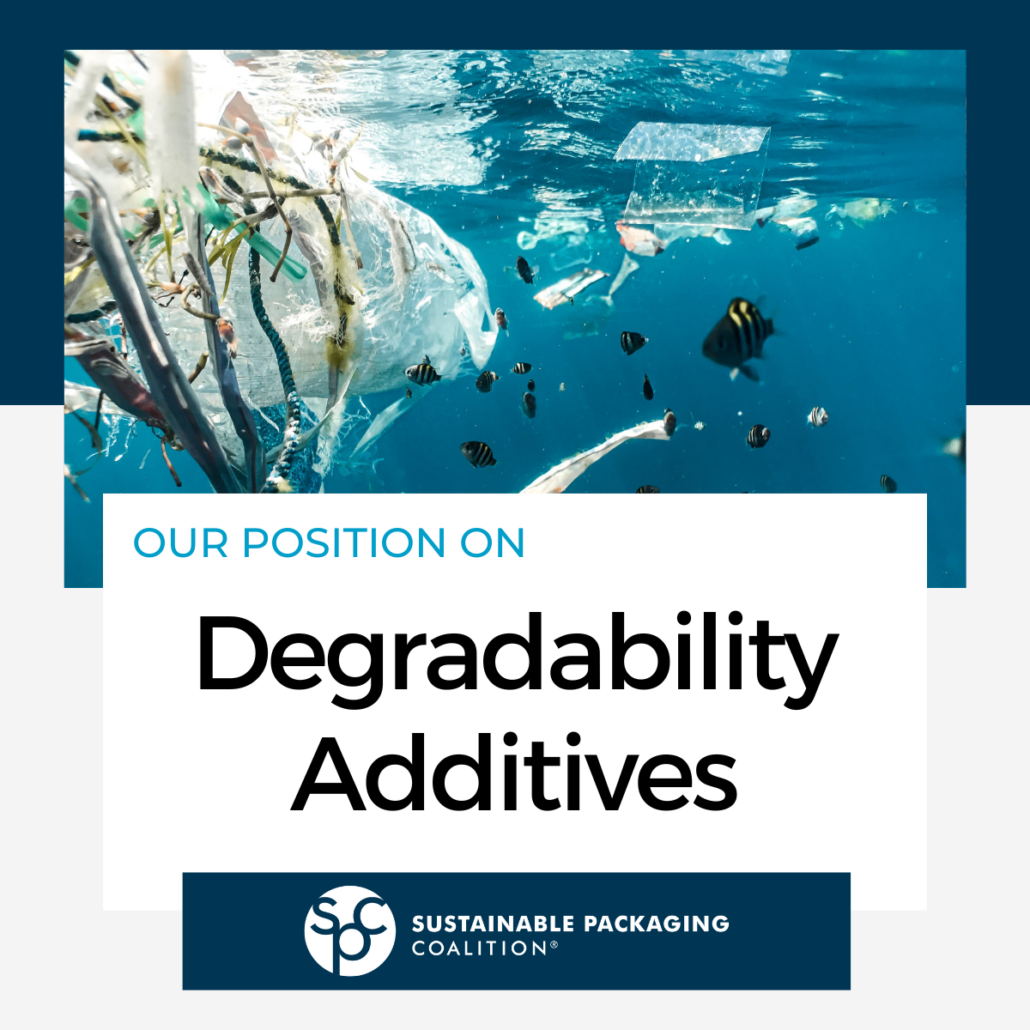The SPC recommends a definition of greenwashing to enable more fruitful conversations about environmental marketing, on-pack ecolabeling, and consumer education. In order for greenwashing to be effectively combatted, there must be a specific definition of what constitutes greenwashing. The sustainability field does not currently have a single widely accepted and specific definition of greenwashing.
Rather, we have vague or overly broad descriptions. Consensus around the definition of greenwashing presented herein will enable more fruitful conversations about what counts as adequate support for environmental marketing claims. Additionally, the SPC recommends coupling on-pack eco-labeling with other modes of consumer education around sustainability initiatives. The SPC’s rationale is outlined below.
-
- The SPC defines greenwashing as, “using accurate environmental facts to tell an inaccurate environmental impact story.” This definition is aligned with Mirriam Webster’s approach of defining greenwashing as, “the act or practice of making a product, policy, activity, etc. appear to be more environmentally friendly or less environmentally damaging than it really is.”
The rhetorical argument framework of claims, support, and warrants is useful in assessing environmental marketing. This approach to defining greenwashing as a way of slanting how an environmental message is perceived is important because at the core, advertising is making an argument on behalf of a product. A claim is what is being asserted by the marketer, support is what data or evidence would back up the claim, and a warrant is the underlying reasoning that links the supporting evidence to the claim.
An environmental claim considered to be greenwashing under this frame is not an inaccurate claim; rather, it is one that lacks rigor in the supporting evidence and/or relies on implicit warrants to persuade a consumer rather than clearly-stated compelling evidence. Overly broad claims that require the consumer to ‘fill in the blanks’ for why the claim is a good product attribute are relying on implicit warrants to persuade rather than a stated warrant. Greenwashing enables the marketer to avoid making a claim that would not be substantiated by generally accepted methodologies such as life cycle assessment, while still benefiting from a consumer making that logical leap. - The term ‘greenwashing’ should not be used to refer to the use of false environmental claims in marketing; this is false advertising. Greenwashing is distinct from false advertising due to the use of accurate environmental facts to tell an inaccurate environmental impact story. Rather, the term greenwashing should be used to refer to the strategic use of certain claims, or absence of other relevant information, that presents an inaccurate view of the entire environmental impact. This is because strategies to prevent false claims and misdirection through ambiguous claims are different.
This distinction between greenwashing and false advertising does not condone false advertising. If a message is known to be demonstrably false and is still used in advertising, that is morally wrong, demonstrates a lack of business ethics, and most importantly is illegal in the United States, Canada, the European Union, China, and many other jurisdictions. False advertising, whether environmental in nature or not, must be avoided. - The SPC recommends pursuing independent substantiation for environmental claims. To avoid greenwashing, environmental marketing should include:
- A stated warrant that links relevant supporting information to a specific and truthful claim,
- Any necessary qualifications, and
- Verification from an appropriate and credible independent organization.
To move forward with on-pack consumer education, marketers interested in avoiding greenwashing should use thirdparty certification or verification programs that help to establish substantiation for all claims. There are robust certification
programs for recycled content, material health, fiber sourcing, compostability and other common environmental marketing
claims. There are also programs, such as the How2Recycle, OPRL, and APCO, that verify on-pack recyclability messaging for
specific markets.
To learn more, contact spcinfo@greenblue.org.
- The SPC defines greenwashing as, “using accurate environmental facts to tell an inaccurate environmental impact story.” This definition is aligned with Mirriam Webster’s approach of defining greenwashing as, “the act or practice of making a product, policy, activity, etc. appear to be more environmentally friendly or less environmentally damaging than it really is.”


